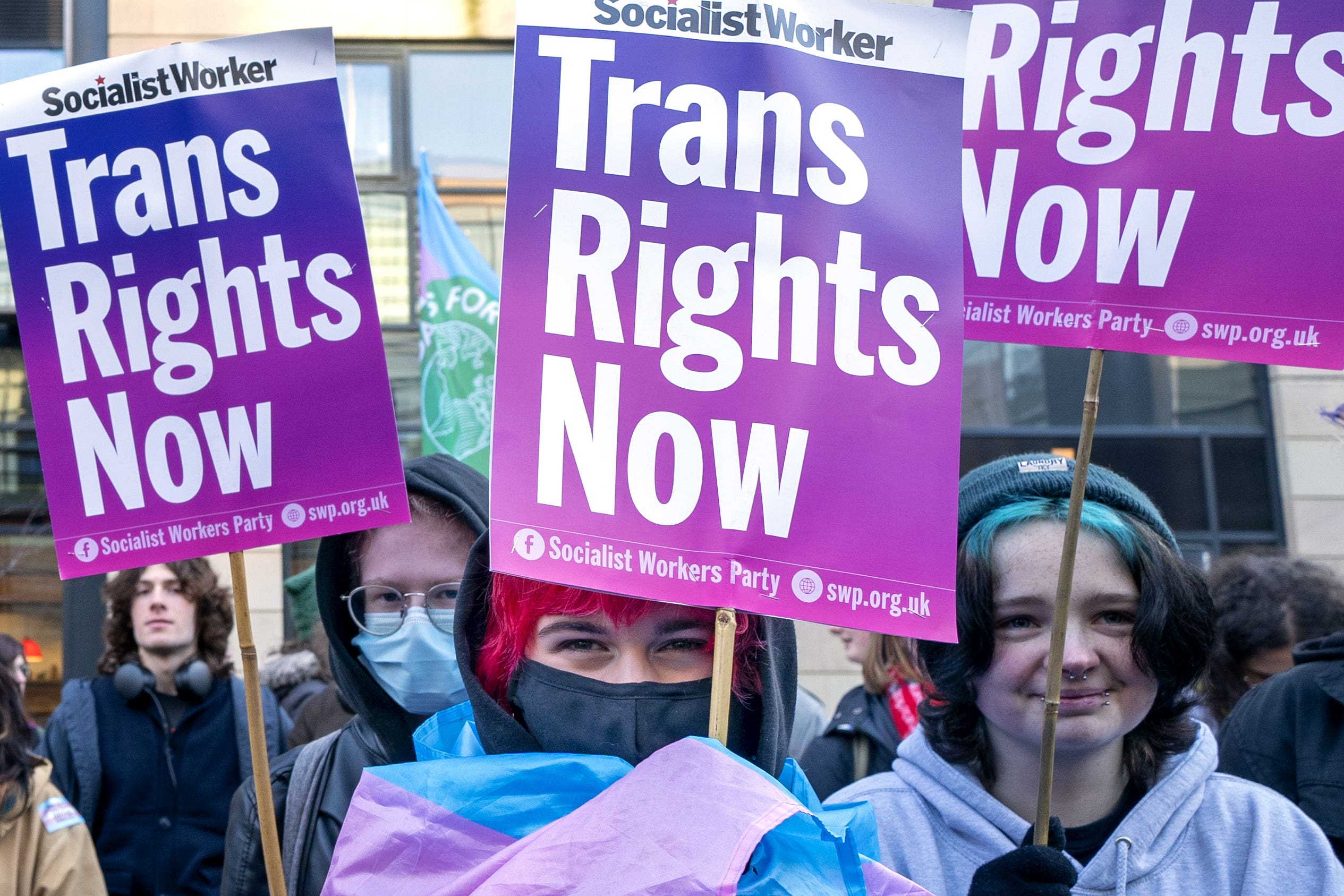Scottish Government refuses to publish legal advice on gender law challenge
The UK Government blocked the Bill over concerns it could interfere with UK-wide equalities legislation.

Your support helps us to tell the story
From reproductive rights to climate change to Big Tech, The Independent is on the ground when the story is developing. Whether it's investigating the financials of Elon Musk's pro-Trump PAC or producing our latest documentary, 'The A Word', which shines a light on the American women fighting for reproductive rights, we know how important it is to parse out the facts from the messaging.
At such a critical moment in US history, we need reporters on the ground. Your donation allows us to keep sending journalists to speak to both sides of the story.
The Independent is trusted by Americans across the entire political spectrum. And unlike many other quality news outlets, we choose not to lock Americans out of our reporting and analysis with paywalls. We believe quality journalism should be available to everyone, paid for by those who can afford it.
Your support makes all the difference.The Scottish Government will not publish the legal advice it has received relating to its challenge of the UK Government’s block of gender reforms, a senior minister has said.
Scottish Social Justice Secretary Shirley-Anne Somerville told MSPs on Wednesday her Government has “no option” but to challenge the Section 35 order which stopped the Gender Recognition Reform (Scotland) Bill being put forward for royal assent.
The UK Government claims the legislation would impact on UK-wide equalities protections.
The Bill will make it easier for trans people to obtain legal recognition of their acquired gender by dropping the need for a medical diagnosis, but some opponents of the Bill have raised concerns it could impact on the safety of women and girls.
During his run for the SNP leadership, Humza Yousaf said he would challenge the order if he received legal advice that doing so had the chance to be successful.
Pressed by Scottish Conservative MSP Donald Cameron on Wednesday to publish the legal advice, Ms Somerville refused.
“As the member will well know, there is a convention not to publish legal advice,” she said.
“It’s exactly the same position the UK Government will take as well as they move forward with this, and I highly doubt that Donald Cameron will be suggesting that the UK Government publish their legal advice.”
The ministerial code asserts that legal advice should not be published except in extraordinary circumstances.
But Ms Somerville was keen to suggest the Scottish Government will be as “transparent” as possible and will publish the petition it lodged with the Court of Session this week after the court approves the move.
She was unable to say how much the legal action will cost, telling MSPs a full costing will be released when the case is complete.
If we want to take a stand and protect our democracy and devolution, there is no option but to pursue this legal challenge
Addressing MSPs, Ms Somerville raised concerns that the UK Government could use Section 35 to block other legislation if it is not challenged in the courts.
She said: “We have not taken this decision lightly. We have considered it carefully. And it was clear to us in our deliberations that allowing the UK Government’s veto on the democratic decisions of this Parliament to go unchallenged would undermine our democracy.
“That cannot go unchallenged because of the implications for future legislation and for devolution, particularly as the Secretary of State refused our offers to work on potential changes to the Bill.
“To this day, I can confirm the UK Government has not offered up a single area for amendment that would satisfy them in relation to the issue of gender recognition reform.
“Therefore if we want to take a stand and protect our democracy and devolution, there is no option but to pursue this legal challenge.”
Mr Cameron said: “It is of course deeply disappointing that the Scottish Government has chosen to challenge the Section 35 order in the courts and is plainly doing so now to divert attention from a serious crisis that is currently engulfing the SNP.
“A lengthy and expensive litigation is the wrong choice for this legislation and for all those impacts.”
Scottish Labour MSP Paul O’Kane said the issue of reform is “too important to be reduced simply to a political debate or a constitutional football”.
He asked the Social Justice Secretary what will be done to support transgender people while the case is in court.
Ms Somerville replied: “As many people will be concerned as we progress to legal action, we will be concerned because of the delay to this Bill and the impact it is having on the trans community.
“I am deeply, deeply sorry that it has come to this and we are not moving directly to royal assent.”
A spokeswoman for the UK Government said: “The UK Government will robustly defend the decision to prevent the Scottish Government’s Gender Recognition Reform Bill from becoming law.
“The Scottish Secretary made the order under Section 35 of the Scotland Act 1998 after thorough and careful consideration of all the relevant advice and the policy implications.
“He was very clear in the accompanying statement of reasons how the Bill would have an adverse effect on reserved matters, including on the operation of the law as it applies to Great Britain-wide equalities protections.
“The use of the power is entirely within the devolution settlement as set out from its inception, with cross-party support.”